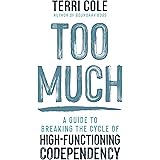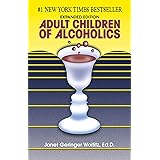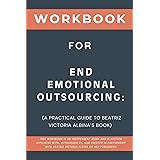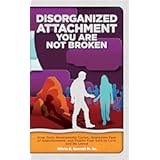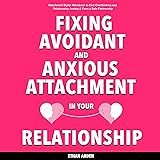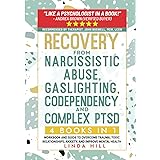The video above highlights a critical issue affecting countless lives across the nation. Indeed, according to the National Council on Problem Gambling, millions of adults in the United States grapple with severe gambling problems each year. This staggering statistic underscores the often-hidden yet profound impact that gambling addiction can have on individuals, their families, careers, and overall well-being. Unlike some other addictions, problem gambling frequently goes unnoticed, allowing it to escalate silently until its consequences become catastrophic. It is a behavior that, while starting as a seemingly innocent hobby, can quickly spiral into a compulsive drive with devastating repercussions.
Understanding the subtle yet powerful warning signs of gambling addiction is the first crucial step toward prevention and recovery. This post delves deeper into these indicators, offering expanded insights into how to recognize problem gambling in yourself or a loved one. We will explore the psychological underpinnings of this addiction, discuss the range of severe consequences it can precipitate, and crucially, provide actionable advice on fostering responsible gaming habits and navigating the path to help. Our aim is to equip you with the knowledge and resources necessary to address this serious challenge effectively.
Understanding Problem Gambling and Its Subtle Signs
1. The National Council on Problem Gambling defines problem gambling as any gambling behavior that causes damage to a person or their family, often disrupting their daily life and career. This definition is crucial because it broadens our understanding beyond just financial ruin, encompassing the broader spectrum of harm. Imagine a successful professional who begins to miss deadlines at work, not because they are physically unwell, but because they spent the night consumed by online betting. This internal struggle often remains concealed, making identification particularly challenging for those around them.
2. One of the primary indicators, as highlighted in the video, involves a persistent preoccupation with gambling. This isn’t just a passing thought; it’s a constant mental loop where the individual is always planning their next bet, reliving past wins, or devising strategies. Consider a scenario where social conversations always steer back to sports odds or casino games, or where seemingly mundane moments are interrupted by thoughts of how to fund the next gambling session. This mental dominance signals a dangerous shift from leisure to obsession, impacting focus on other important aspects of life.
3. Furthermore, a significant warning sign is the escalating need to bet more money more often to achieve the same thrill, a phenomenon known as tolerance. What once offered excitement with a small wager now requires substantially larger sums, pushing financial boundaries further. Picture someone who started with casual friendly bets, but now finds themselves placing thousands on a single outcome, chasing an ever-elusive high. This financial escalation often creates a vicious cycle of debt and desperation, driven by the increasing demands of the addiction.
Unpacking the Core Behavioral Warning Signs
4. Trying to win back lost money, often referred to as “chasing losses,” is a deeply ingrained and dangerous aspect of problem gambling. This desperate attempt to recover previous losses only deepens the financial hole, as logic and probability are often overridden by compulsive urges. Imagine a person, having lost a significant amount, immediately planning their next bet, convinced that ‘just one more win’ will erase all previous deficits, only to find themselves losing even more. This cycle can quickly deplete savings, ruin credit, and foster immense emotional distress.
5. Moreover, feelings of restlessness or irritability when attempting to stop or cut back on gambling are strong indicators of a developing dependency. These emotional responses are classic withdrawal symptoms, akin to those experienced with substance addictions. Consider someone who becomes agitated, withdrawn, or even aggressive when prevented from gambling or when their access is limited. This emotional volatility highlights the powerful grip the behavior has taken, making self-control increasingly difficult and demonstrating a genuine struggle with impulse regulation.
6. Crucially, a persistent feeling of being unable to control oneself, despite a desire to stop, is a hallmark of severe problem gambling. This loss of autonomy signifies that the behavior has moved beyond choice and into the realm of compulsion. Imagine an individual making sincere promises to quit, only to find themselves drawn back to gambling sites or casinos within hours or days, feeling helpless against the urge. This internal battle between intention and action can lead to profound feelings of guilt, shame, and hopelessness, further exacerbating the addiction.
The Profound Impact of Problem Gambling Addiction
7. Gambling despite negative consequences is a critical red flag, demonstrating the addiction’s pervasive power over rational thought and self-preservation. These consequences can range from minor financial strain to devastating personal and legal crises. Think of someone who continues to gamble even after losing their job, experiencing marital problems, or facing legal charges due to gambling-related activities. The inability to halt the behavior in the face of such clear and present dangers underscores the severity of the addiction, indicating a profound detachment from reality.
8. In extreme cases, the fallout from gambling addiction can be truly catastrophic, leading to bankruptcy, severe legal problems, and the devastating loss of one’s job or family. These outcomes are not merely unfortunate incidents but often the culmination of a long, unaddressed struggle. Imagine a family torn apart by financial ruin and broken trust, or a once-respected professional now facing criminal charges for fraud committed to sustain their gambling habit. Such scenarios illustrate the profound societal and personal damage that problem gambling can inflict, affecting not only the individual but their entire support system.
9. Furthermore, and perhaps most tragically, severe gambling addiction can tragically lead to suicidal thoughts. The immense weight of debt, shame, and perceived hopelessness can drive individuals to despair, feeling trapped with no way out. This is a crucial point that cannot be overstated; the emotional toll of problem gambling is immense, often underestimated by those who view it simply as a financial issue. Recognizing this severe consequence underscores the urgent need for intervention and comprehensive support for those struggling.
Fostering Responsible Gaming Practices
10. Adopting the right mindset is fundamental to responsible gaming, starting with a clear understanding of the odds. Gambling should always be viewed as entertainment, where losses are expected and accepted as the cost of the activity, rather than an investment or a guaranteed path to wealth. Imagine approaching a game with the knowledge that the house always has an edge, viewing any potential win as a bonus, not an entitlement. This realistic perspective helps to manage expectations and prevents the dangerous pursuit of ‘sure things.’
11. Understanding the specific game you’re playing is another vital component of responsible gaming, allowing for informed choices rather than impulsive bets. Whether it’s the rules of poker, the payout structure of a slot machine, or the intricacies of sports betting, knowledge empowers better decision-making. Picture a scenario where you’re fully aware of how different types of bets function and their associated risks, enabling you to choose options that align with your budget and entertainment goals. This informed approach significantly reduces the likelihood of reckless gambling.
12. Most importantly, keeping gambling social and treating it as a form of occasional recreation, rather than a solitary, all-consuming activity, is key. When gambling becomes a solitary pursuit, it often masks deeper emotional issues or develops into a coping mechanism, detaching the individual from healthy social interactions. Consider limiting gambling to shared experiences with friends or family, setting clear time and money limits for these occasions. This social context helps to maintain perspective and prevents the isolation often associated with problem gambling.
Navigating the Modern Landscape of Betting
13. The ease of access provided by modern devices has made sports betting and other forms of online gambling more prevalent than ever, emphasizing the need for heightened vigilance. The American Gaming Association wisely advises individuals to “think before you gamble” and to diligently monitor their behavior. This means pausing to consider the financial implications and personal consequences before placing a bet, rather than acting on impulse. It also involves regularly reviewing one’s gambling habits to identify any patterns of increased spending or time commitment that could signal a problem.
14. If you do choose to place a bet, it is absolutely essential to do so on a legal site that implements robust responsible gaming protections. These platforms offer tools such as self-exclusion options, deposit limits, and time-out periods, empowering users to manage their gambling proactively. Imagine selecting a platform that allows you to cap your weekly spending or take a mandatory break after a certain amount of play. Utilizing these features can act as a crucial safety net, preventing accidental overspending or the escalation of problem behaviors, fostering a safer gaming environment.
Supporting a Loved One and Seeking Help
15. If you are concerned about a loved one’s involvement in gambling, a vigilant yet compassionate approach is essential. Keeping a careful eye on their habits and observing their emotional responses during gambling-related moments can provide crucial insights. For instance, if you notice them displaying significant anxiety or extreme emotional highs and lows around an important moment in a game, it might be an opportune time to gently open a conversation. Such observations allow you to approach the discussion from a place of genuine concern rather than accusation.
16. When initiating such a conversation, it’s vital to give that person the space to communicate openly and without judgment. Direct confrontation can often lead to defensiveness or further withdrawal, hindering the possibility of help. Imagine expressing your concern by saying, “I’ve noticed you seem stressed when watching the game, and I’m here to listen if you want to talk about anything.” Creating a safe, non-confrontational environment encourages them to share their struggles and paves the way for a more productive discussion about their gambling habits and potential solutions.
17. Right now, if you or someone you care about is grappling with the challenges of problem gambling, immediate and confidential help is readily available. Reaching out is a sign of strength, not weakness, and there are dedicated resources designed to provide support and guidance. The National Council on Problem Gambling operates a confidential hotline that offers assistance 24/7. This vital service provides a direct connection to trained professionals who understand the complexities of gambling addiction and can guide callers to appropriate local resources and support networks.
You can call the National Council on Problem Gambling hotline at 1-800-GAMBLER for immediate assistance. Additionally, a wealth of valuable resources, including self-assessment tools, support group information, and educational materials, can be found on their comprehensive website, NCPGgambling.org. Taking this courageous step is the beginning of a journey toward recovery and reclaiming control over one’s life from the grip of gambling addiction.


